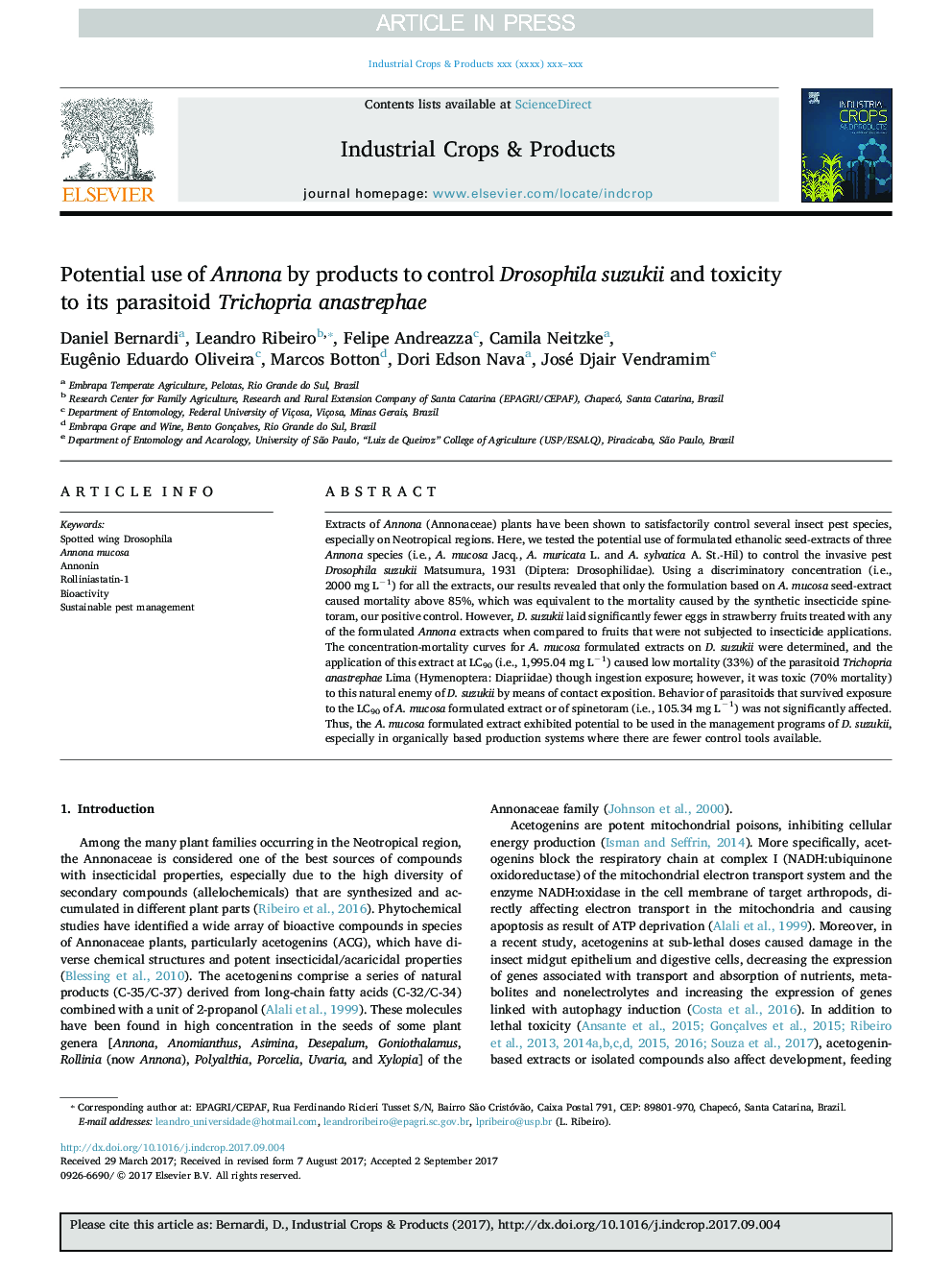| Article ID | Journal | Published Year | Pages | File Type |
|---|---|---|---|---|
| 8880993 | Industrial Crops and Products | 2017 | 6 Pages |
Abstract
Extracts of Annona (Annonaceae) plants have been shown to satisfactorily control several insect pest species, especially on Neotropical regions. Here, we tested the potential use of formulated ethanolic seed-extracts of three Annona species (i.e., A. mucosa Jacq., A. muricata L. and A. sylvatica A. St.-Hil) to control the invasive pest Drosophila suzukii Matsumura, 1931 (Diptera: Drosophilidae). Using a discriminatory concentration (i.e., 2000 mg Lâ1) for all the extracts, our results revealed that only the formulation based on A. mucosa seed-extract caused mortality above 85%, which was equivalent to the mortality caused by the synthetic insecticide spinetoram, our positive control. However, D. suzukii laid significantly fewer eggs in strawberry fruits treated with any of the formulated Annona extracts when compared to fruits that were not subjected to insecticide applications. The concentration-mortality curves for A. mucosa formulated extracts on D. suzukii were determined, and the application of this extract at LC90 (i.e., 1,995.04 mg Lâ1) caused low mortality (33%) of the parasitoid Trichopria anastrephae Lima (Hymenoptera: Diapriidae) though ingestion exposure; however, it was toxic (70% mortality) to this natural enemy of D. suzukii by means of contact exposition. Behavior of parasitoids that survived exposure to the LC90 of A. mucosa formulated extract or of spinetoram (i.e., 105.34 mg Lâ1) was not significantly affected. Thus, the A. mucosa formulated extract exhibited potential to be used in the management programs of D. suzukii, especially in organically based production systems where there are fewer control tools available.
Related Topics
Life Sciences
Agricultural and Biological Sciences
Agronomy and Crop Science
Authors
Daniel Bernardi, Leandro Ribeiro, Felipe Andreazza, Camila Neitzke, Eugênio Eduardo Oliveira, Marcos Botton, Dori Edson Nava, José Djair Vendramim,
